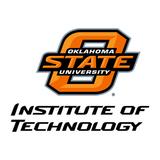School Highlights
Indian Capital Technology Center-Muskogee serves 1,571 students (25% of students are full-time).
Minority enrollment is 100% of the student body (majority Black), which is less than the state average of 56%.
Quick Facts (2026)
- Enrollment: 1,571 students
- Acceptance Rate: 35%
- Minority enrollment: 100%
- Source: Verified school update
Top Rankings
Indian Capital Technology Center-Muskogee ranks among the top 20% of public schools in Oklahoma for:
Category
Attribute
Selectivity
Completion Rates
School Overview
Indian Capital Technology Center-Muskogee
(OK) Community College Avg.
Carnegie Classification
Not applicable, not in Carnegie universe (not accredited or nondegree-granting)
Baccalaureate/Associate's Colleges: Mixed Baccalaureate/Associate's
Institution Level
At least 2 but less than 4 years
At least 2 but less than 4 years
Institution Control
Public
Public
Total Faculty
n/a
184 staff
Student Body
The student population of Indian Capital Technology Center-Muskogee has grown by 164% over five years.
The Indian Capital Technology Center-Muskogee diversity score of 0.49 is less than the state average of 0.76. The school's diversity has declined by 22% over five years.
Total Enrollment
1,571 students
1,856 students
Student-Teacher Ratio
n/a
18:1
# Full-Time Students
392 students
712 students
# Part-Time Students
1,179 students
1,144 students
# Enrollment Undergraduate
n/a
248 students
# Full-Time Undergraduate Students
392 students
663 students
# Full-Time Graduate Students
n/a
5 students
# Part-Time Undergraduate Students
1,179 students
1,058 students
# Part-Time Graduate Students
n/a
14 students
Total Dormitory Capacity
n/a
300 students
% American Indian/Alaskan
1%
8%
% Asian
11%
4%
% Hispanic
n/a
11%
% Black
16%
10%
% White
n/a
44%
% Hawaiian
69%
8%
% Two or more races
2%
10%
% Non Resident races
n/a
1%
% Unknown races
1%
4%
Diversity Score
0.49
0.76
College Completion Rate (Students who graduate in less than 4 years)
98%
54%
College Completion Rate (Students who graduate in 4 years or more than 4 years)
n/a
15%
Average Graduate Earnings (10 Years)
$26,700
$34,700
Tuition and Acceptance Rate
% Students Receiving Some Financial Aid
85%
88%
Median Debt for Graduates
n/a
$11,000
Median Debt for Dropouts
n/a
$5,637
Acceptance Rate
35%
55%
SAT Reading
n/a
387
SAT Math
n/a
475
ACT Composite
n/a
18
ACT English
n/a
17
ACT Math
n/a
18
Extracurriculars
Total ExtracurricularsTotal Extra-curric.
1 extracurricular
ExtracurricularsExtra-curric.
Club or Organization:
Business Professionals of America
Source: 2024 (or latest year available) Integrated Postsecondary Education Data System (IPEDS) , School Administrators
School Notes
- School Mascot: Eagle
- Sample of notable school alumni/alumnae:
- John Smith - Renowned Engineer, Class of 2005 -
- Emily Johnson - Nobel Prize Winner, Class of 2010 -
Frequently Asked Questions
What is the acceptance rate of Indian Capital Technology Center-Muskogee?
The acceptance rate of Indian Capital Technology Center-Muskogee is 35%, which is lower than the state average of 55%. Indian Capital Technology Center-Muskogee's acceptance rate is ranked among the top community colleges in Oklahoma with low acceptance rates.
Who are famous alumni from Indian Capital Technology Center-Muskogee?
Indian Capital Technology Center-Muskogee famous alumni include: John Smith - Renowned Engineer, Class of 2005 and Emily Johnson - Nobel Prize Winner, Class of 2010.
What is Indian Capital Technology Center-Muskogee's ranking?
Indian Capital Technology Center-Muskogee ranks among the top 20% of community college in Oklahoma for: Lowest acceptance rates, Average community college minority breakdown and Highest completion rates.
Recent Articles

Community College vs. Bootcamps for Tech Careers in 2026
Community college vs. bootcamps in 2026. Compare cost, outcomes, credentials, and hiring trends to choose the best tech career path.

How to Build a Class Schedule That Fits Your Life (Spring 2026)
Learn how to build a class schedule that fits your life with expert tips, updated strategies for Spring 2026, and practical planning tools for students and families.

Top 10 Jobs for Community College Graduates in 2026
Meta Description: Discover high-demand jobs for community college graduates, with current salary trends, costs, and career pathways.






